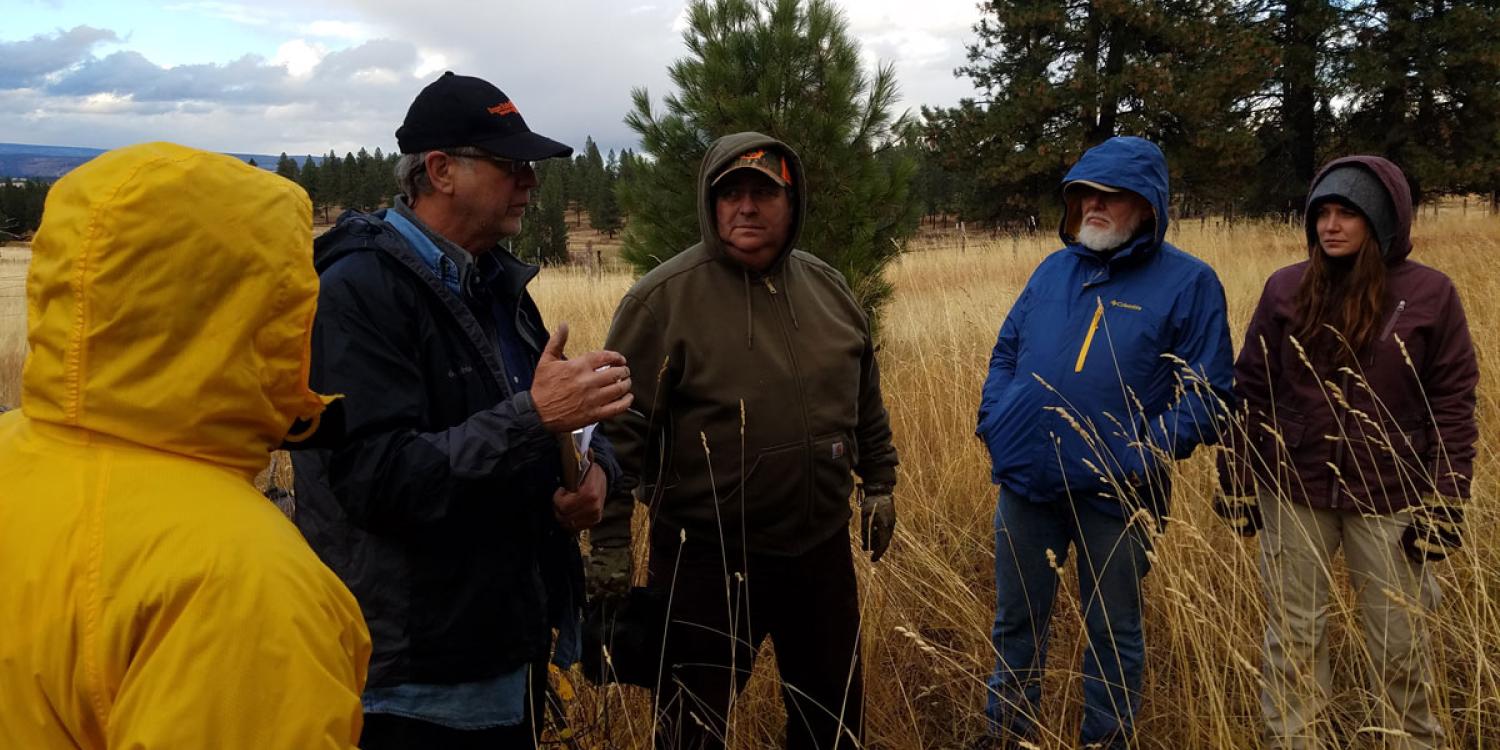
Oregon's small woodland owners manage almost 4.5 million acres – or 40% of all private forestland in the state. In Baker and Grant counties, private owners manage 150,000 acres, providing substantial contributions to local economic, social, ecological and recreational services.
Private woodland owners need opportunities to learn from experts as well as from each other. The state’s many forestry agencies, institutions and other organizations are challenged to build community networks among such a diverse group.
In response, Jacob Putney, an Oregon State University Extension Service forester and assistant professor of practice in the College of Forestry, stepped into the role of regional coordinator for the Master Woodland Manager (MWM) program in Baker and Grant counties. The statewide program educates owners on topics such as management planning, ecology and forest inventory. In return for instruction from professional foresters and topic experts, the trainees agree to volunteer the equivalent number of hours to share the knowledge they have gained with other small woodland owners.
Master Woodland Manager volunteers also work to foster networks in their communities by educating other woodland owners to collaborate with each other, which helps facilitate a sense of community and confidence. They take on leadership roles in forest landowner organizations, educate non-owners and participate in community science projects.
As a result, MWM volunteers in Baker and Grant counties, who were required to keep track of their time, reported putting in a combined 1,055 hours of unique activities in 2021 and 2022, impacting 1,063 members of the public, including from watershed councils and other organizations, small forestland owners and youths. Statewide, more than 80% of Master Woodland Managers remain active past their required volunteer service commitment, with some now serving as long as the program has been in existence, over 35 years. The same dedication is expected in eastern Oregon.
The program has a reputation for objectiveness that provides landowners with the self-confidence needed to work confidently with professionals, policy makers and their peers. As one volunteer put it, “The knowledge I gained by taking the MWM training gave me the confidence to serve on local boards and committees as well as enough confidence that I could intelligently express my concerns, problems, and solutions.”